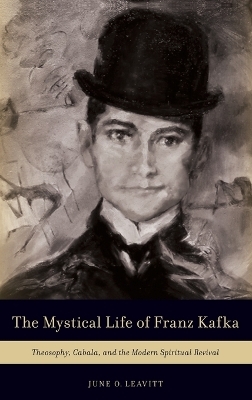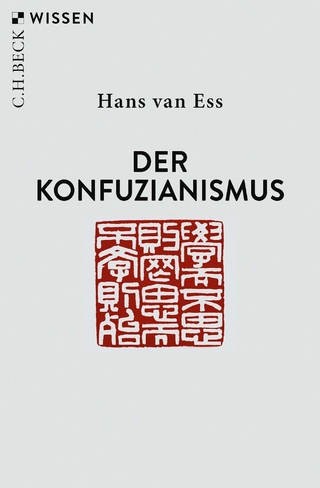
The Mystical Life of Franz Kafka
Theosophy, Cabala, and the Modern Spiritual Revival
Seiten
2011
Oxford University Press Inc (Verlag)
978-0-19-982783-1 (ISBN)
Oxford University Press Inc (Verlag)
978-0-19-982783-1 (ISBN)
June O. Leavitt offers a fascinating examination of the mystical in Franz Kafka's life and writings, showing that Kafka's understanding of the occult was not only a product of his own clairvoyant experiences but of the age in which he lived.
In a long-overlooked diary entry, Franz Kafka admitted to suffering from ''bouts of clairvoyance.'' These bouts of clairvoyance can be seen in his writing, in moments when the solid basis of human cognition totters, the dissolution of matter seems imminent, and objects are jarringly severed from physical referents. June O. Leavitt offers a fascinating examination of the mystical in Kafka's life and writings, showing that Kafka's understanding of the occult was not only a product of his own clairvoyant experiences but of the age in which he lived.
Kafka lived during the modern Spiritual Revival, a powerful movement which resisted materialism, rejected the adulation of science and Darwin, and idealized clairvoyant modes of consciousness. Kafka's contemporaries - such theosophical ideologues as Madame H.P. Blavatsky, Annie Besant, and Dr. Rudolph Steiner - encouraged the counterculture to seek the true, spiritual essence of reality by inducing out-of-body experiences and producing visions of higher disembodied beings through meditative techniques. Leaders of the Spiritual Revival also called for the adoption of certain lifestyles, such as vegetarianism, in order to help transform consciousness and return humanity to its divine nature.
Interweaving the occult discourse on clairvoyance, the divine nature of animal life, vegetarianism, the spiritual sources of dreams, and the eternal nature of the soul with Kafka's dream-chronicles, animal narratives, diaries, letters, and stories, Leavitt takes the reader on a journey through the texts of a great psychic writer and the fascinating epoch of the Spiritual Revival.
In a long-overlooked diary entry, Franz Kafka admitted to suffering from ''bouts of clairvoyance.'' These bouts of clairvoyance can be seen in his writing, in moments when the solid basis of human cognition totters, the dissolution of matter seems imminent, and objects are jarringly severed from physical referents. June O. Leavitt offers a fascinating examination of the mystical in Kafka's life and writings, showing that Kafka's understanding of the occult was not only a product of his own clairvoyant experiences but of the age in which he lived.
Kafka lived during the modern Spiritual Revival, a powerful movement which resisted materialism, rejected the adulation of science and Darwin, and idealized clairvoyant modes of consciousness. Kafka's contemporaries - such theosophical ideologues as Madame H.P. Blavatsky, Annie Besant, and Dr. Rudolph Steiner - encouraged the counterculture to seek the true, spiritual essence of reality by inducing out-of-body experiences and producing visions of higher disembodied beings through meditative techniques. Leaders of the Spiritual Revival also called for the adoption of certain lifestyles, such as vegetarianism, in order to help transform consciousness and return humanity to its divine nature.
Interweaving the occult discourse on clairvoyance, the divine nature of animal life, vegetarianism, the spiritual sources of dreams, and the eternal nature of the soul with Kafka's dream-chronicles, animal narratives, diaries, letters, and stories, Leavitt takes the reader on a journey through the texts of a great psychic writer and the fascinating epoch of the Spiritual Revival.
Adjunct lecturer at Ben Gurion University of the Negev in Israel
Acknowledgements ; Introduction ; Chapter One: Towards an Understanding of Kafka's Mystical Life ; Chapter Two: Mystical Experience in Kafka's Early Prose ; Chapter Three: Kafka's Meditation and the Materialization of a Spirit ; Chapter Four: The Obsession with Dreams ; Chapter Five: Kafka, the After-Life and Transmigration of Souls ; Chapter Six: Cabala, Freemasonry and the Trials of Brother F.K. ; Chapter Seven: The Mystical Life of Animals: Investigations of a Vegetarian ; Conclusion: The Mystical Life of Franz Kafka in Perspective ; Notes ; Bibliography ; Index
| Verlagsort | New York |
|---|---|
| Sprache | englisch |
| Maße | 239 x 160 mm |
| Gewicht | 465 g |
| Themenwelt | Geisteswissenschaften ► Religion / Theologie ► Weitere Religionen |
| Geisteswissenschaften ► Sprach- / Literaturwissenschaft ► Anglistik / Amerikanistik | |
| Geisteswissenschaften ► Sprach- / Literaturwissenschaft ► Literaturwissenschaft | |
| Weitere Fachgebiete ► Anthroposophie | |
| ISBN-10 | 0-19-982783-4 / 0199827834 |
| ISBN-13 | 978-0-19-982783-1 / 9780199827831 |
| Zustand | Neuware |
| Informationen gemäß Produktsicherheitsverordnung (GPSR) | |
| Haben Sie eine Frage zum Produkt? |
Mehr entdecken
aus dem Bereich
aus dem Bereich
archäologische Fakten und Fiktionen im Neuheidentum
Buch | Softcover (2023)
Verlag Anton Pustet
24,00 €


